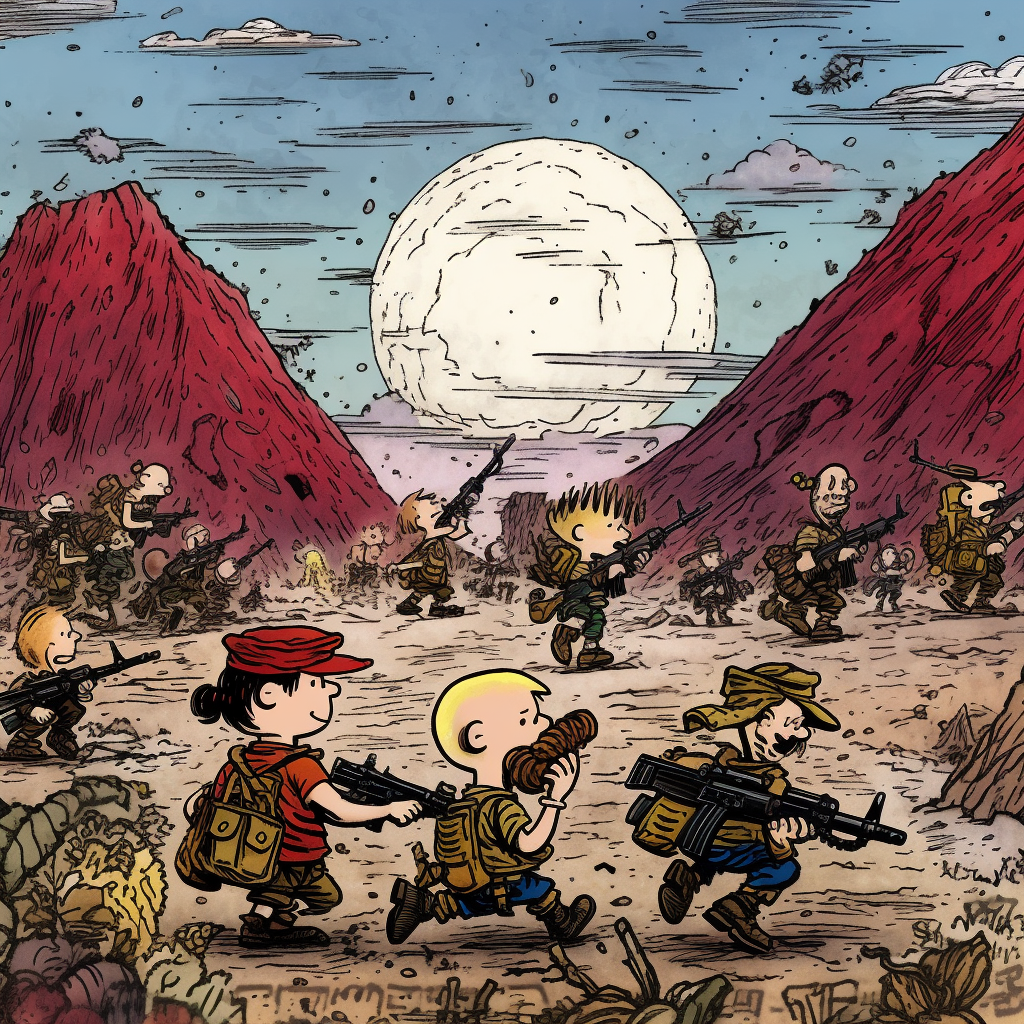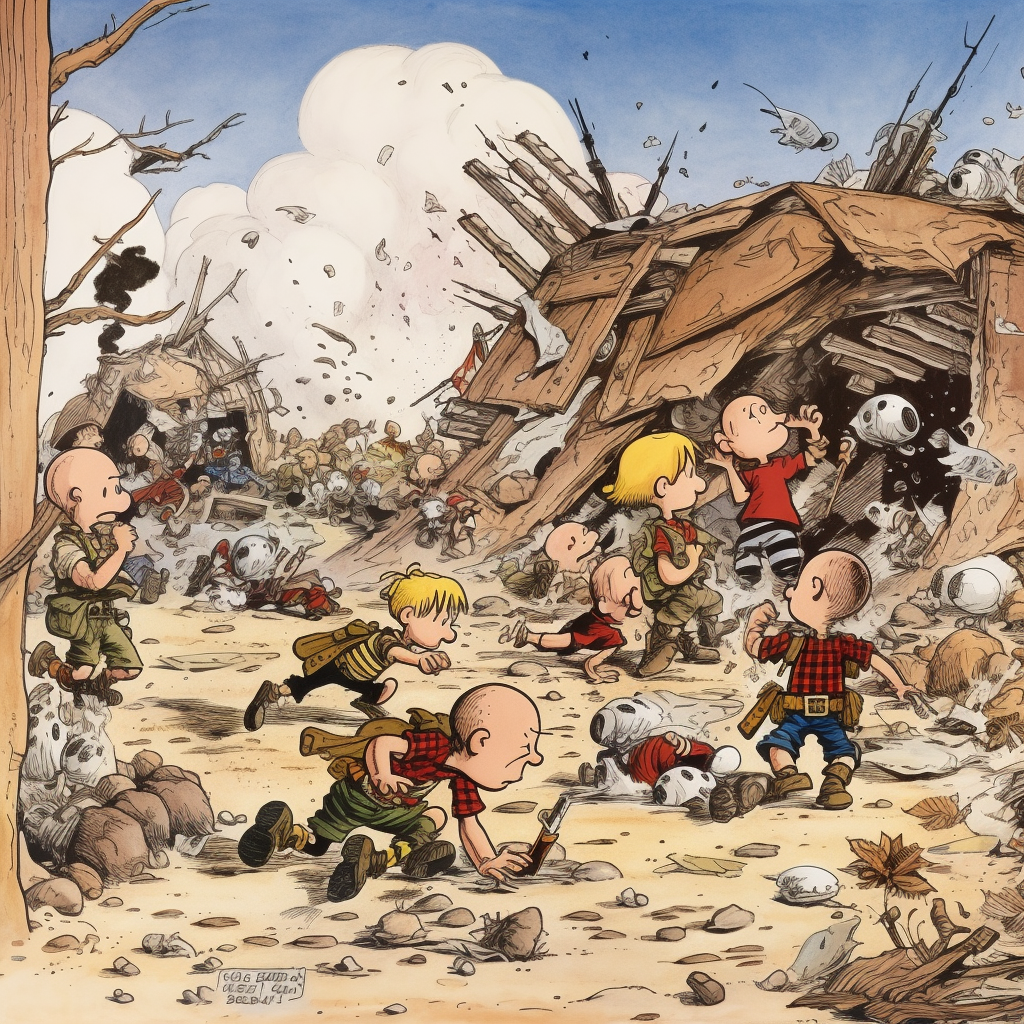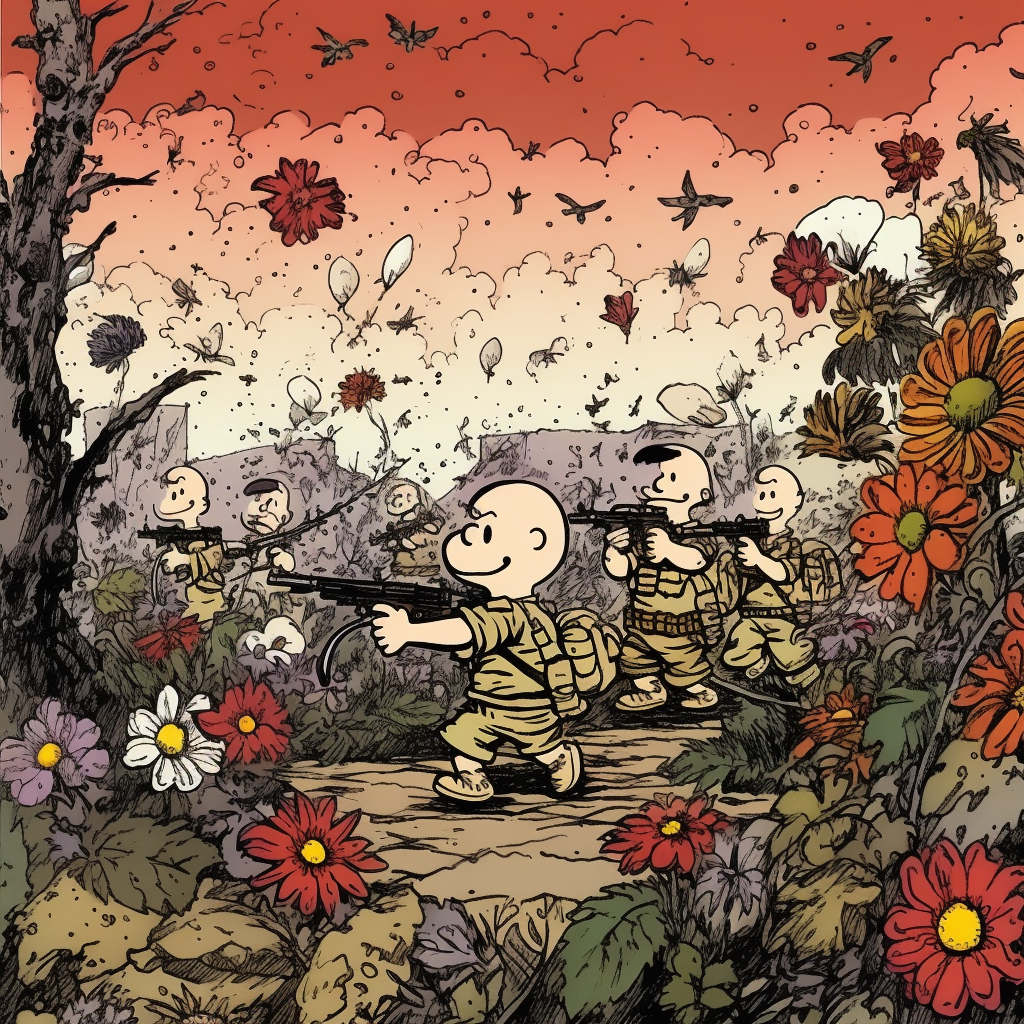
Throughout history, war has been romanticized and glorified, perpetuating a cycle of violence and hindering human evolution. However, as we face the pressing challenges of climate change and other global issues, it becomes increasingly evident that the solution lies not in division and conflict but in globalization and cooperative efforts. In today’s post, we will explore how romanticizing war is counterproductive to human progress and discuss the imperative need for global cooperation to tackle the world’s most pressing problems.
The Illusion of Glory

War has often been portrayed as heroic and noble, capturing the imagination of societies for centuries. We are fed narratives of valiant warriors, conquering heroes, and patriotic sacrifices from ancient epics to modern blockbuster movies. While it is important to honor those who have fought for just causes, the romanticization of war often obscures its harsh realities. The brutalities, destruction, and loss of human life are overshadowed by an idealized vision that perpetuates a dangerous cycle of conflict.
Stifling Human Evolution

By romanticizing war, we inadvertently hamper the progress of human civilization. Wars divert resources, both financial and intellectual, away from endeavors that could contribute to the betterment of society. The immense costs associated with warfare—both human and economic—prevent us from investing in education, healthcare, infrastructure, and sustainable development. Instead of fostering progress, war perpetuates division and sets nations against each other, hindering collaboration and mutual growth.

Climate Change and Global Issues
Climate change is a pressing global issue that demands urgent action. Rising temperatures, extreme weather events, and environmental degradation pose significant threats to the survival of our planet and all its inhabitants. These challenges cannot be addressed effectively through war or isolationism. Instead, they require global cooperation and collective efforts.
Globalization and Collaboration

Globalization, despite its shortcomings, offers a pathway to a more interconnected and sustainable future. By transcending borders and fostering cultural exchange, globalization encourages sharing of knowledge, ideas, and resources. It promotes understanding and empathy, fostering a sense of collective responsibility toward the challenges we face as a global community.

Together, nations can pool their expertise, resources, and technologies to develop sustainable energy solutions, implement effective climate policies, and preserve biodiversity. Through collaboration, we can enhance disaster response mechanisms, alleviate poverty, improve access to education and healthcare, and foster economic growth for all.
The Role of Individuals

While policy changes and international agreements are crucial, individuals also significantly drive global cooperation. We must challenge the narratives that glorify war and instead promote peacebuilding, diplomacy, and empathy. By recognizing our shared humanity, celebrating diversity, and fostering intercultural dialogue, we can break down barriers and build bridges of understanding.

Romanticizing and glorifying war impedes human evolution and perpetuates a cycle of violence. In contrast, globalization and global cooperation provide the foundation for progress and solving the world’s most pressing challenges, including climate change. By transcending borders, working together, and pooling our resources and expertise, we can forge a path toward a sustainable and harmonious future. Let us shed the illusions of glory and embrace a shared vision of peace, cooperation, and collective growth.














